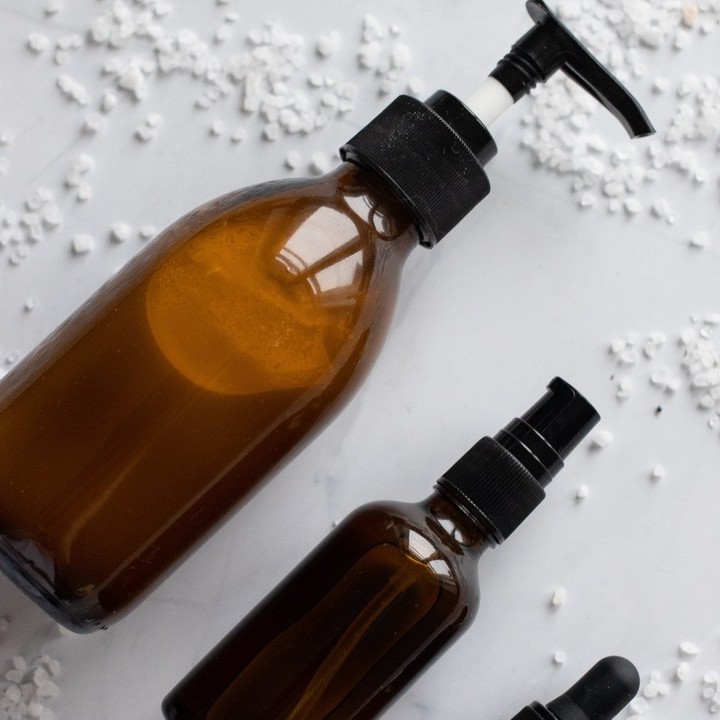
Effective Daily Skincare Routine for Acne Treatment
Effective Daily Skincare Routine for Acne Treatment
Acne can be both physically and emotionally challenging. While various factors contribute to its development, establishing a consistent and targeted daily skincare routine is crucial for managing and treating acne. This article will explore Effective Daily Skincare Routine for Acne Treatment
Understanding Acne:
Before delving into the skincare routine, it's essential to understand the factors contributing to acne formation. Acne typically arises from the combination of excess oil production, clogged pores, bacteria (Propionibacterium acnes), and inflammation. Hormonal changes, genetics, and certain medications can also play a role.
The Best Daily Skincare Routine for Acne Treatment:
- Gentle Cleansing:
Start your morning and evening routine with a mild, fragrance-free cleanser. Look for ingredients like salicylic acid or benzoyl peroxide, known for their acne-fighting properties. Avoid harsh scrubs or abrasive cleansers, as they can irritate the skin and exacerbate acne. You can choose Eucerin Dermopurifyer Oil Control Cleansing Gel 200 ml
- Exfoliation:
Include exfoliation in your routine 2-3 times a week to remove dead skin cells and unclog pores. Opt for a chemical exfoliant containing alpha hydroxy acids (AHAs) like glycolic acid or beta hydroxy acids (BHAs) like salicylic acid. These ingredients help prevent the buildup of dead skin cells that contribute to acne formation.
- Toning:
One of the primary benefits of using a toner in an acne-focused skincare routine is its ability to restore the skin's pH balance. Cleansers, especially those containing active ingredients like salicylic acid or benzoyl peroxide, may slightly alter the skin's pH. Toners, when formulated with skin-friendly ingredients, help bring the pH back to its natural, slightly acidic state. This adjustment is crucial for creating an environment that discourages the proliferation of acne-causing bacteria and supports the skin's natural protective barrier.
Moreover, toners can assist in removing any residual impurities after cleansing. Even with the most thorough cleansing routine, there may be traces of makeup, dirt, or oil left on the skin. A toner acts as a final cleansing step, ensuring that the skin is free from any lingering debris that could potentially clog pores and contribute to acne formation.
For individuals with acne-prone skin, toners with specific ingredients are particularly beneficial. Look for toners containing witch hazel, a natural astringent known for its ability to tighten pores and control excess oil. Chamomile and aloe vera are also excellent additions, offering anti-inflammatory properties that can soothe irritated skin commonly associated with acne.
Importantly, when selecting a toner for acne-prone skin, it is advisable to opt for alcohol-free formulations. Alcohol can strip the skin of its natural oils, leading to increased oil production as the skin tries to compensate. This rebound effect can exacerbate acne symptoms.
Incorporating toner into a daily skincare routine for acne is a versatile practice. It can be applied using a cotton pad or simply by gently patting it onto the skin with clean hands. This step not only enhances the effectiveness of subsequent products in the routine but also provides a refreshing and revitalizing sensation.
Choose a gentle, alcohol-free toner to balance the skin's pH and remove any remaining impurities.
Look for toners containing ingredients like witch hazel, chamomile, or aloe vera to soothe the skin without causing irritation.
- Treatment Products:
Apply a targeted treatment product containing benzoyl peroxide or salicylic acid to affected areas. These ingredients are known for their anti-inflammatory and antibacterial properties. Use spot treatments for individual blemishes and consider incorporating a retinoid into your routine, known for promoting skin cell turnover and preventing clogged pores.
- Moisturizing:
One of the misconceptions about acne-prone skin is that it doesn't need moisturizing. In reality, many acne-fighting products, such as cleansers and topical treatments, can be drying, stripping the skin of its natural oils. This dryness can trigger the skin to produce even more oil as a compensatory mechanism, leading to increased acne breakouts. Therefore, incorporating a lightweight, non-comedogenic moisturizer is crucial to maintain proper skin hydration and prevent excessive oil production.
Choosing the right moisturizer for acne-prone skin involves opting for formulations labeled as non-comedogenic, meaning they won't clog pores. Look for ingredients like hyaluronic acid, glycerin, or ceramides, which provide hydration without exacerbating acne symptoms. These ingredients help balance the skin's moisture levels without introducing additional oils that may contribute to pore congestion.
Moisturizing also plays a role in supporting the skin's natural barrier function. A compromised skin barrier is more susceptible to environmental irritants, bacteria, and inflammation, all of which can worsen acne. By keeping the skin adequately moisturized, a healthy barrier is maintained, reducing the likelihood of external factors triggering acne flare-ups.
For individuals using acne medications like benzoyl peroxide or retinoids, moisturizing becomes even more crucial. These treatments can be dry and may cause skin sensitivity. A well-formulated moisturizer can mitigate these side effects, helping to minimize irritation and redness associated with acne treatments.
When applying moisturizer in an acne-focused skincare routine, it's essential to do so consistently, both in the morning and evening. The morning application creates a protective barrier against environmental stressors, while the evening application aids in overnight skin repair and regeneration.
Even if you have oily or acne-prone skin, moisturizing is crucial to maintain skin hydration.
Choose a non-comedogenic, oil-free moisturizer to prevent clogged pores. Ingredients like hyaluronic acid and glycerin are excellent choices.
- Sun Protection:
Daily sun protection is essential to prevent hyperpigmentation and protect the skin from UV damage. Use a broad-spectrum sunscreen with an SPF of at least 30. Opt for a formula labeled as non-comedogenic to avoid clogging pores.
- Hydration:
Drink an adequate amount of water throughout the day to keep your skin hydrated from within. Hydration is essential for overall skin health and can aid in the healing process.
- Healthy Lifestyle Choices:
Maintain a balanced diet rich in fruits, vegetables, and whole grains. Limit the consumption of processed foods, dairy, and high-sugar items, as they may exacerbate acne. Manage stress through practices such as meditation, yoga, or deep breathing exercises, as stress can contribute to hormonal imbalances that trigger acne.
Additional Tips:
Consistency is Key:
Stick to your skincare routine consistently to see optimal results. It may take weeks or even months for noticeable improvements, so patience is crucial.
Patch Test New Products:
Before incorporating new products into your routine, perform a patch test to ensure they don't cause irritation or worsen acne.
Consult a Dermatologist:
If over-the-counter products don't yield desired results, consult a dermatologist. They can provide personalized advice, prescribe medications, or recommend professional treatments like chemical peels or laser therapy.
A well-crafted daily skincare routine is fundamental in the battle against acne. By incorporating gentle cleansing, exfoliation, targeted treatments, and essential hydration, individuals can address the various factors contributing to acne formation. Consistency, patience, and a holistic approach to skincare, including lifestyle choices, are essential for achieving and maintaining clear, healthy skin. Remember, what works for one person may not work for another, so it's essential to tailor your skincare routine to your unique skin type and concerns.
 العربية
العربية





